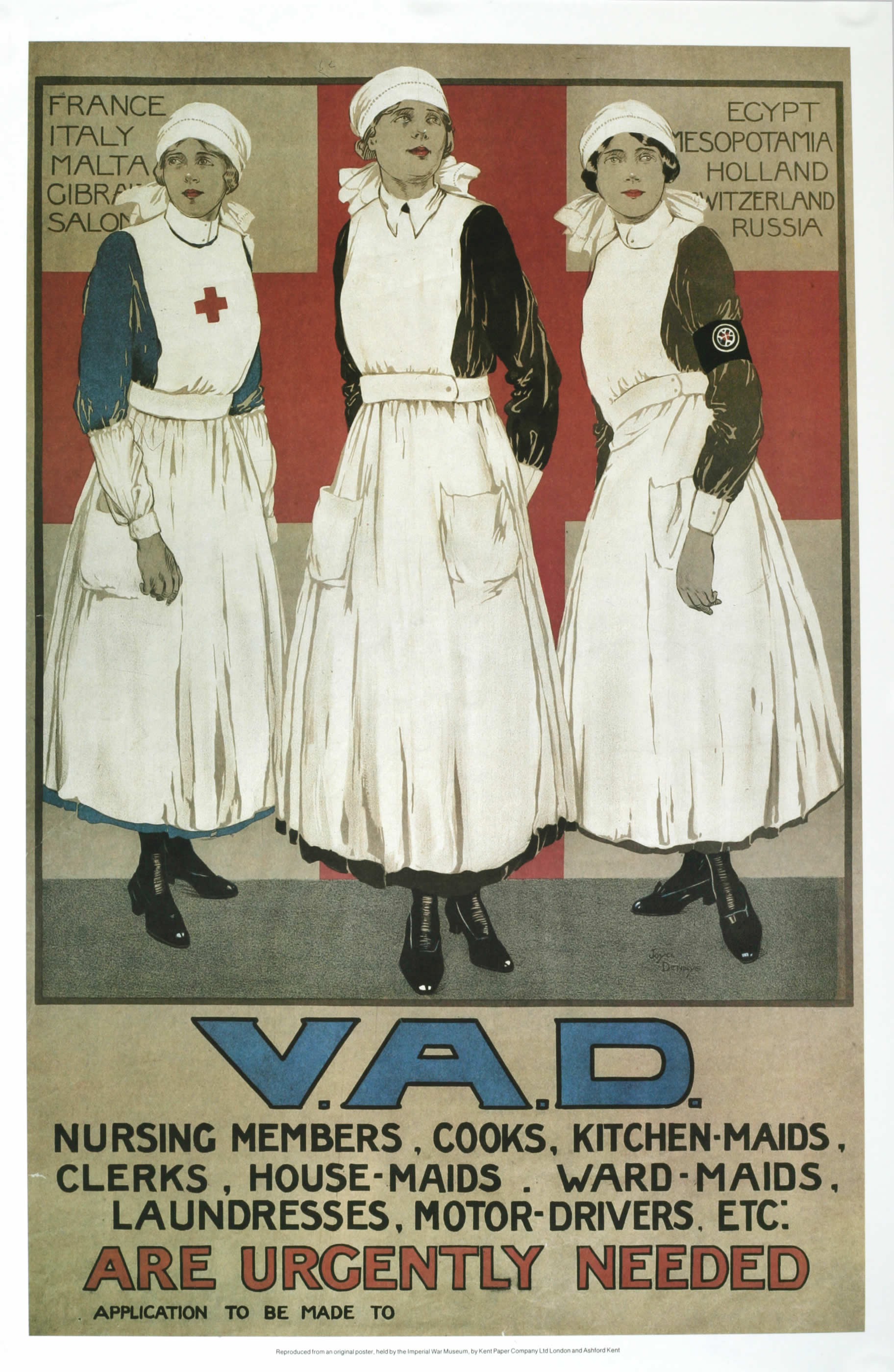Born in 1893, May Wedderburn Cannan was the daughter of Charles Cannan, Dean of Trinity College, and the head of the Oxford University Press (OUP) until his death after the end of the war. Raised in and surrounded by a world of literary influence, May had her first poem printed in The Scotsman at the age of 15. By the time of the Paris Peace Conference in 1919, she had two published anthologies: In War Time (1917) and The Splendid Days (1919); these would be followed by a third, The House of Hope, in 1923.
Like so many other female poets who were writing at the time, May’s voice is, wrongfully, not as strongly heard as the bellows of soldier-poets. She writes with a quiet, lyrical confidence, offering a moving and authentic insight into her own personal wartime experiences, away from the heart of the combat. In the spring of 1915, May was posted to Rouen, which sits on the banks of the Seine.
During the war, the city was safely behind the front line and was used by the British as a main supply base for recuperating men, with many hospitals stationed on its outskirts. May spent a month in Normandy’s capital, helping to run a busy railhead canteen as part of the Voluntary Aid Detachment, and it was this which formed the basis of one of her most well-known poems, which is simply titled, ‘Rouen’.

“Can you recall those noontides and the reek of steam and coffee,
Heavy-laden nontides with the evening’s peace to win,
And the little piles of Woodbines, and the sticky soda bottles,
And the crushes in the ‘Parlour’, and the letters coming in?”– Rouen
Sensuous and evocative, the poem explores each of the senses in detailed turn—“the reek of steam and coffee”, “the sticky soda bottles”, “the distant call of bugles”—with a hypersensitive and reflective tone throughout. Her writing style is equally as descriptive and gratifying; in her posthumously-published autobiographical work, Grey Ghosts and Voices (1976), she recalls “rain and blurred lanterns and men’s voices dying away in the dark”.
Not only emotively written, her memoir is also valuable in providing a historicity of her surroundings at the time; she describes the canteen as a “row of sheds with huge sliding doors” and “the thunder of seats pushed back, the stamp of army boots on the pave”, as the soldiers climbed back aboard the whistling trains.

Upon leaving Rouen and returning to Oxford, May volunteered for her father’s press company and was involved in the printing of propaganda material. Of the approximately 700 men who had worked for the OUP, 356 were conscripted within the first year; this naturally opened up opportunities for the women in the workforce, who had previously worked only in the bindery.
In 1918, she returned to France to work in the Espionage Department of the War Office in Paris. In ‘Paris, November 11, 1918’, a poem which is dedicated to an unknown ‘G.A.H.’, she diarises her recollection of that day, remembering the exhausting and unsatisfying arrival of the Armistice, drawing us close into the immediate aftermath of a new and broken world, and sharing the confusion and the heartbreak of the home front:
“‘I have a toast for you and me,’ you said,
And whispered ‘Absent,’ and we drank
Our unforgotten Dead.”– Paris, November 11, 1918
In her 1917 poem, ‘Lamplight’, composed during her time back in Oxford and miles away from the battlefields, May begins with the line: “We planned to shake the world together, you and I”. It’s a sorrowful opening, filled with futile dreams and lost loves.
Her own fiancé, Bevil Quiller-Couch, survived the war, having fought at Ypres and on the Somme, but died during the Spanish flu pandemic of 1919; she remembers him in her poem, ‘Death’, hoping that he’s with “the dear friends he knew”. May later married Percival James Slater, who had served as a balloonist, and she passed away in 1973 at the age of 80. After her visions of shaking the world, it seems a shame that her writings never did cause a poetic earthquake.

In a society that is continually trying to comprehend the enormity and the impact of the Great War, her words are hugely important, in their description and their perspective, and they should be remembered more than as the smallest of tremors.
“Can you recall the midnights, and the footsteps of night watchers,
Men who came from darkness and went back to dark again,
And the shadows on the rail-lines and the all inglorious labour,
And the promise of the daylight firing blue the windowpane?”– Rouen
For more on the fighting men of World War I, pick up the new issue of History of War here or subscribe now and save 25% off the cover price.
References:
- http://maywedderburncannan.wordpress.com
- http://www.ox.ac.uk/world-war-1/places/oxford-university-press
- Scars Upon My Heart: Women’s Poetry and Verse of the First World War by Catherine Reilly
